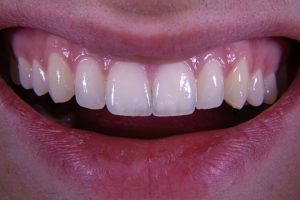In terms of function and benefits, dental implants are simply the best choice as a permanent missing tooth replacement option. With the help of an experienced and skilled dental surgeon, dental implants can last for decades and have a success rate of over 95%. However, certain complications may arise with the dental implant procedure if done by the hands of an inexperienced dentist or if adequate post-treatment care is not followed.
Early Dental Implant Failure
Early dental implant failure occurs within the first few months of the procedure and usually occurs in cases when the implant fails to integrate into the jawbone. There may be several reasons for early dental implant failure like –
Infections at the Site of the Implant:
Local infections prevent the dental implant from successfully integrating into the jawbone. These infections may occur during the surgical procedure or as a result of poor oral hygiene that results in peri-implantitis. Peri-implantitis leads to loosening of the implant from the surrounding structures, eventually leading to implant failure.
Allergic Reactions:
Dental implants are usually made of biocompatible materials like titanium alloy. However, some individuals may develop allergic reactions to the alloy, which contains trace amounts of nickel – a predisposing element to allergies. These allergic reactions manifest soon after the procedure as localized swelling, tingling sensation, and loss of taste. Allergies may also develop against the dental cement that is used to bond the dental crown to the implant, which may leach out from beneath the crown.
Insufficient Bone Support
The most important aspect of a successful dental implant is associated with bone support around it. While it is ill-advised to install dental implants in regions of insufficient bone support, a dentist might still go ahead with the procedure. Because there is a lack of bone available to fuse with the implant, this usually results in dental implant failure.
Overloading of Implant:
The dental implant procedure is usually done in two steps. The first step is the surgical drilling of the implant into the jawbone, followed by a waiting period of 4-6 months that allows the implant to integrate into the bone. The next step is the attachment of the abutment and the dental crown on the implant. In some cases, the dentist may perform ‘immediate loading’ by skipping the waiting period. This reduces the treatment time considerably and can lead to a quicker recovery.
However, this can also put excessive pressure on the implant and lead to its instability. Minor movements of the implant within the bone before it has had a chance to integrate can lead to its failure.
Late Dental Implant Failure
Even after successful integration of the implant into the jawbone, problems with dental implants may arise years later. This is known as long-term or late dental implant failure. The factors that may lead to this are:
Nerve or Tissue Damage:
If the dental implant is placed too close to an important nerve in the jaw, it may cause impingement of the nerve and lead to pain or numbness in the region. Tissue damage caused during the surgery may also manifest much later after the implant procedure and spread to the lips, cheek, tongue, and chin.
Mechanical Injury:
Any kind of injury to the mouth or teeth may cause damage to the implant. Without proper intervention, these dental implants can loosen within the bone and are bound to fail.
Harmful Habits:
Smoking is one of the leading causes of implant failure. It is advised to quit smoking to ensure the longevity of dental implants. Bruxism – teeth-grinding or clenching during sleep – is another habit that can lead to the eventual failure of the dental implant due to excessive pressure on the implant.
Incorrect Treatment Planning:
One must seek a well-qualified dentist for their dental implant procedure. Implant failure may occasionally occur due to a lack of skills and experience on behalf of the dentist. Inadequacies like the wrong number, location, or angulation of the implant, or even a general lack of treatment planning, can eventually lead to the failure of the dental implant.
Visit Brooklyn Blvd. Dental where our expert team of dental surgeons and supportive staff will guide you towards a comfortable and satisfying experience at the dental office.







